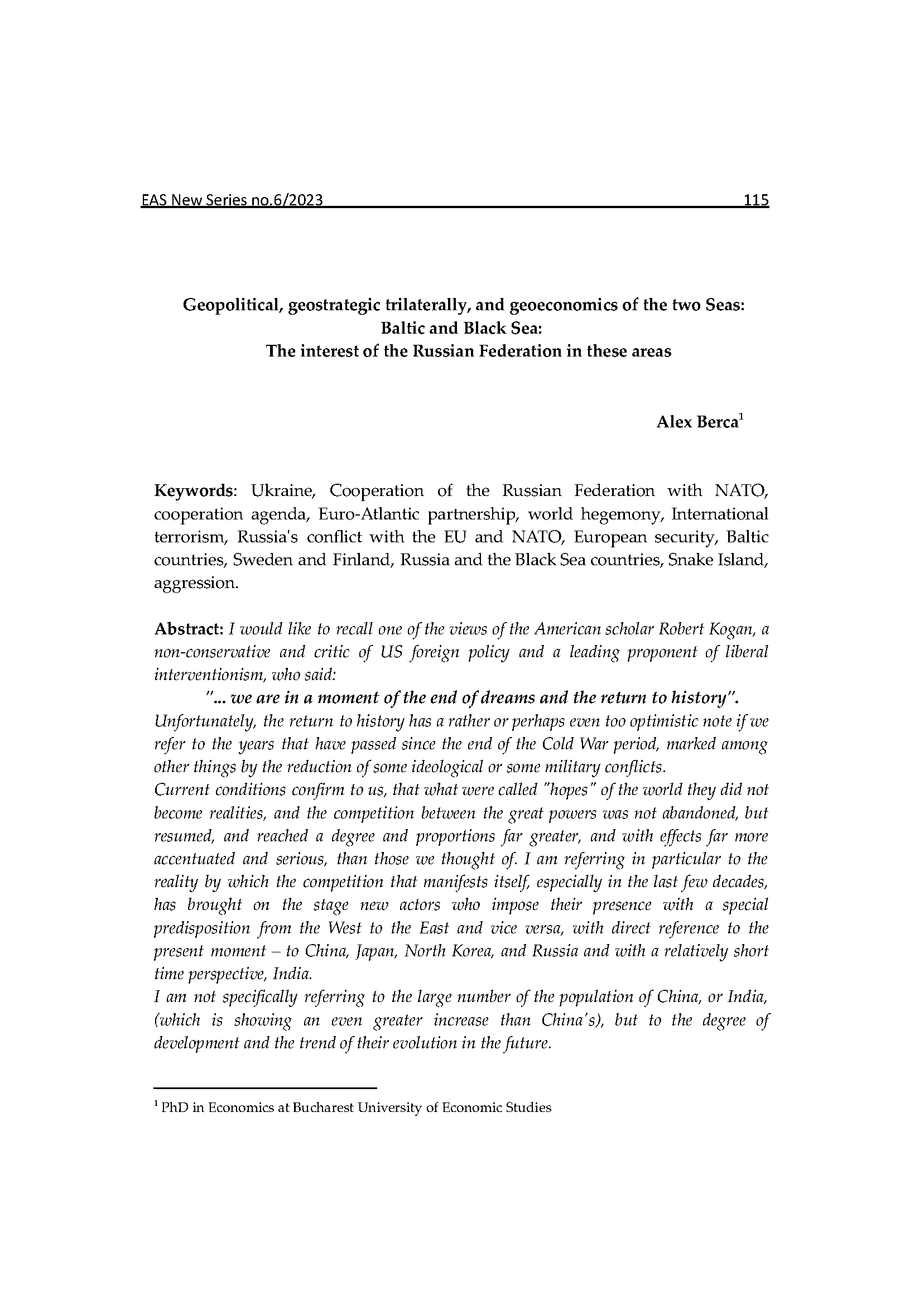Geopolitical, geostrategic trilaterally, and geoeconomics of the two Seas: Baltic and Black Sea: The interest of the Russian Federation in these areas
DOI:
https://doi.org/10.31178/eas.2023.6.4Keywords:
Ukraine, Cooperation of the Russian Federation with NATO, cooperation agenda, Euro-Atlantic partnership, world hegemony, International terrorism, Russia's conflict with the EU and NATO, European security, Baltic countries, Sweden and Finland, Russia and the Black Sea countries, Snake Island, aggressionAbstract
I would like to recall one of the views of the American scholar Robert Kogan, a non-conservative and critic of US foreign policy and a leading proponent of liberal interventionism, who said: "... we are in a moment of the end of dreams and the return to history". Unfortunately, the return to history has a rather or perhaps even too optimistic note if we refer to the years that have passed since the end of the Cold War period, marked among other things by the reduction of some ideological or some military conflicts. Current conditions confirm to us, that what were called "hopes" of the world they did not become realities, and the competition between the great powers was not abandoned, but resumed, and reached a degree and proportions far greater, and with effects far more accentuated and serious, than those we thought of. I am referring in particular to the reality by which the competition that manifests itself, especially in the last few decades, has brought on the stage new actors who impose their presence with a special predisposition from the West to the East and vice versa, with direct reference to the present moment – to China, Japan, North Korea, and Russia and with a relatively short time perspective, India. I am not specifically referring to the large number of the population of China, or India, (which is showing an even greater increase than China's), but to the degree of development and the trend of their evolution in the future.





